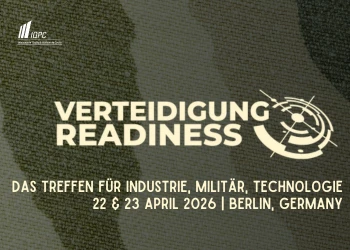COVID-19: Game Changer for International Security
Add bookmark
COVID-19 & the Global Security Landscape
In a world of startling change, the first duty of government remains protecting the safety and security of its citizens. Today, many nations across the world are more vulnerable than ever before. The Coronavirus pandemic has exposed the fragility of humankind and the national security measures put in place to protect citizens and preserve their economic well-being. Within a matter of weeks, the life that we all knew has been devastatingly disrupted.
A New Reality
It would be a grave error to regard the current pandemic as merely another episode in the long history of human health crisis. The speed of the spread of the virus and the instantaneous crippling of economies and social lockdown of communities has marked the dawning of a new era. Although health crisis have been endemic to human history for centuries, there is something particularly horrific about the suddenness and sheer magnitude of the daily loss of life which will be more than any nation can bear.
The concept of national and international security today, is very different to what it was just several weeks ago, let alone ten, fifty or a hundred years ago.
Amplifying global vulnerability to the spread of COVID-19 has been the openness of modern societies, an intrinsic part of a world that is increasingly networked than ever before. We live in an age of unparalleled opportunity in which globalisation has opened up new possibilities which previous generations could not have dreamed of. More open markets has resulted in more open societies, and more open societies has meant more people living in freedom.
But increasing levels of freedom of movement, accelerated by frictionless and smarter borders, now seems incompatible to the new reality of preventing and protecting against viral pandemics. In summary, the concept of national and international security today, is very different to what it was just several weeks ago, let alone ten, fifty or a hundred years ago.
Rule by Decree
To build a strong post-COVID-19 nation, governments across the world will believe that a radical transformation is required in relation to the way they think about national security, as well as how their nation organise themselves to protect it.
New national security postures will be developed in what will continue to be an age of uncertainty, as nations attempt to avoid a deep depression and rebuild from the human and economic repercussions of the global pandemic crisis. State leadership will seek more effective approaches to preserving national security which weighs up all of the threats – military, health, environmental - they face, and prepare its government and related authorities in light of lessons being learned from their current response to COVID-19.
The opportunity of responding to the current crisis has ushered in a new political age in which soft authoritarians have turned harder, and the surveillance state has become a way of life, even in some democracies.
All in authority now must recognise that a reactive security posture will not preserve their nation’s security, and so an increasingly proactive and creative approach is required to be implemented, being dedicated to identifying new and emerging threat vectors, founded upon the security principles of preparedness, with an ability to horizon scan and amplify the very weakest of signals that indicate risk. This new proactive posture will be an essential part of preparing a nation’s new international security posture demanded of a post-COVID-19 world.
Most countries have introduced some form of extraordinary measures to combat COVID-19, but some states have made dramatic changes to their national security architectures, including political power grabs by presidents to rule by decree. The opportunity of responding to the current crisis has ushered in a new political age in which soft authoritarians have turned harder, and the surveillance state has become a way of life, even in some democracies. The fear is that these temporary provisions implemented during the war on COVID-19 will turn out to be permanent.
Power Shift
There is no prescription for the pandemic crisis. This has not happened before. All in authority are making what they believe to be the right decisions at the right time that are both culturally appropriate and sensitive to the population they serve. These decisions are being informed by the best accessible evidence provided by the brightest minds in their specialist fields, being underpinned by the forecasting and modelling computing power generated by big data analytics and artificial intelligence.
In the midst of managing the peak of the pandemic, as the balance of political and economic power permutates, the international security landscape has shifted.
Despite the wealth of scientific knowledge and technological advancements, in time we will undoubtedly learn that mistakes were made and decisions taken with grave unintended consequences – an inevitable outcome of any crisis of this magnitude as governments make critical decisions while under the heavy burden of responsibility and dark clouds of uncertainty within demanding timescales.
We will also come to learn that in the midst of managing the peak of the pandemic, as the balance of political and economic power permutates, the international security landscape has shifted, representing a game-changer with far-reaching implications for the future of defence and the international security landscape.

























